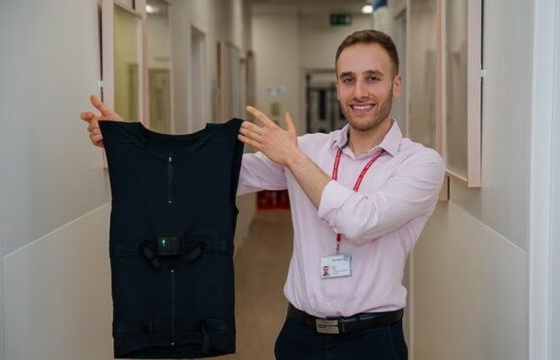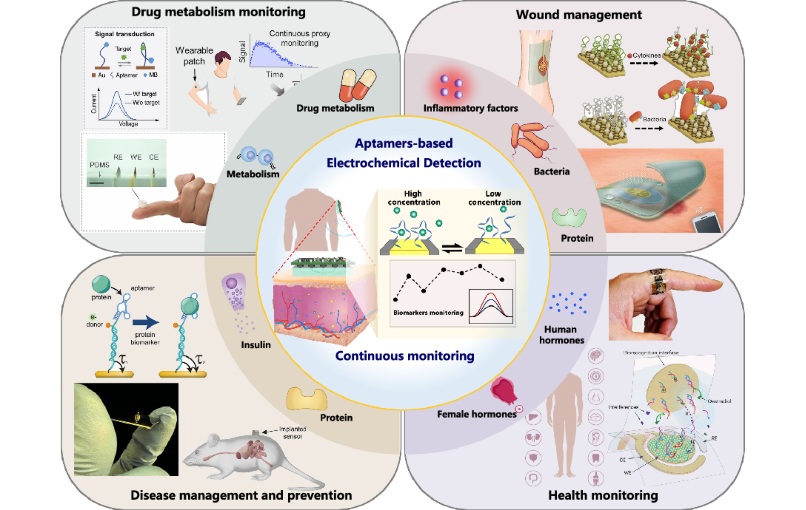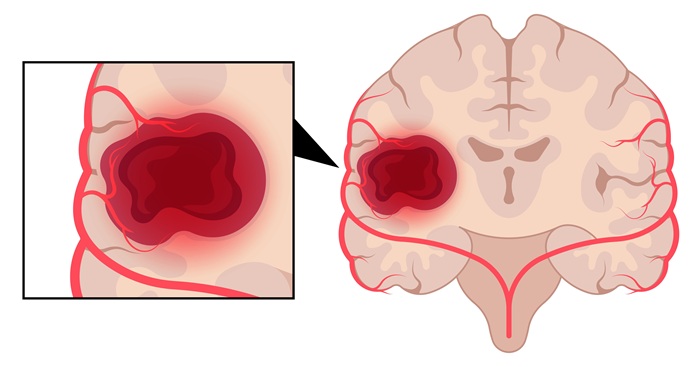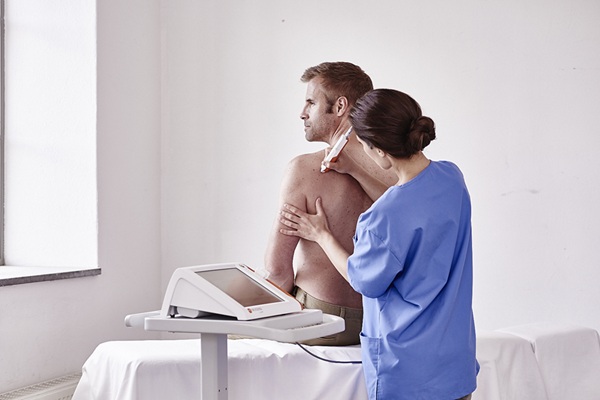Machine Learning-Aided Tool Generates High-Quality Chest X-Ray Images to Diagnose COVID-19 More Accurately
|
By HospiMedica International staff writers Posted on 15 Dec 2020 |
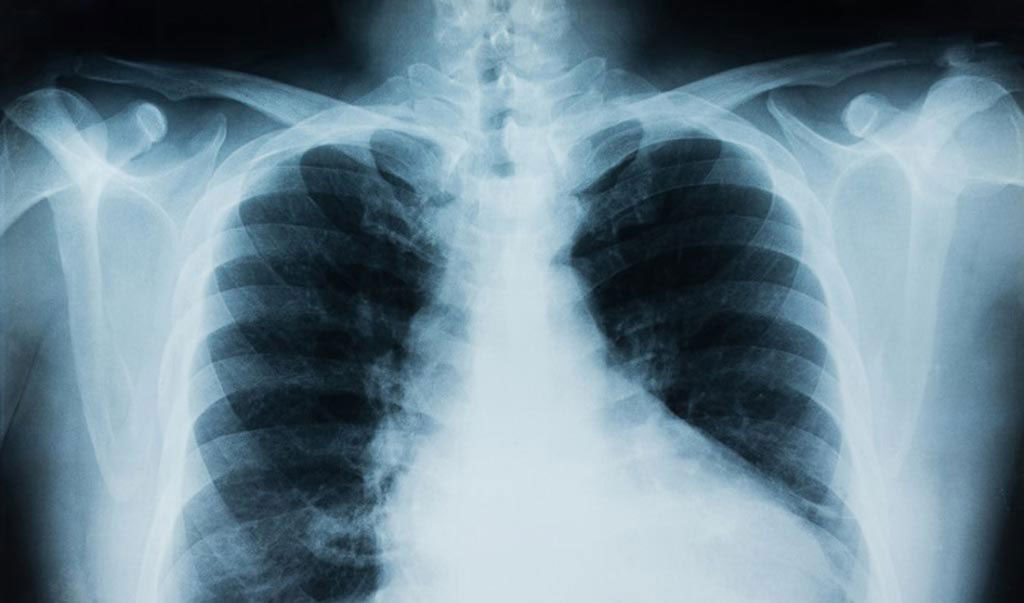
Illustration
A new method of generating high-quality chest X-ray images can be used to diagnose COVID-19 more accurately than current methods.
The team of researchers at the University of Maryland, Baltimore County (UMBC; Baltimore, MD, USA) has published its findings in the proceedings of the IEEE Big Data 2020 Conference. The need for rapid and accurate COVID-19 testing is high, including testing that can determine if COVID-19 is impacting a patient's respiratory system. Many clinicians use X-ray technology to classify images of possible cases of COVID-19, but the limited data available makes it more challenging to classify those images accurately.
The UMBC researchers developed their tool as an extension of generative adversarial networks (GANs) - machine learning frameworks that can quickly generate new data based on statistics from a training set. The team's more advanced method uses what they call Mean Teacher + Transfer Generative Adversarial Networks (MTT-GAN). The MTT-GANs are superior to GANs because the images they generate are much more similar to authentic images generated by x-ray machines. The MTT-GAN classification system has the potential to help improve the accuracy of COVID-19 classifiers, making it an important diagnostic tool for physicians who are still working to understand the range of ways this complex disease presents in patients.
"The availability of data is one of the most important aspects of machine learning and our research has taken an incremental theoretical step towards generating data using the MTT-GAN," said Sumeet Menon, a Ph.D. student in computer science at UMBC who led the research team. "This paper mainly focuses on generating more COVID-19 X-rays using the MTT-GAN, which could be widely used to train machine learning models and could have many applications, including classification of CT-scans and segmentation."
Related Links:
University of Maryland, Baltimore County
The team of researchers at the University of Maryland, Baltimore County (UMBC; Baltimore, MD, USA) has published its findings in the proceedings of the IEEE Big Data 2020 Conference. The need for rapid and accurate COVID-19 testing is high, including testing that can determine if COVID-19 is impacting a patient's respiratory system. Many clinicians use X-ray technology to classify images of possible cases of COVID-19, but the limited data available makes it more challenging to classify those images accurately.
The UMBC researchers developed their tool as an extension of generative adversarial networks (GANs) - machine learning frameworks that can quickly generate new data based on statistics from a training set. The team's more advanced method uses what they call Mean Teacher + Transfer Generative Adversarial Networks (MTT-GAN). The MTT-GANs are superior to GANs because the images they generate are much more similar to authentic images generated by x-ray machines. The MTT-GAN classification system has the potential to help improve the accuracy of COVID-19 classifiers, making it an important diagnostic tool for physicians who are still working to understand the range of ways this complex disease presents in patients.
"The availability of data is one of the most important aspects of machine learning and our research has taken an incremental theoretical step towards generating data using the MTT-GAN," said Sumeet Menon, a Ph.D. student in computer science at UMBC who led the research team. "This paper mainly focuses on generating more COVID-19 X-rays using the MTT-GAN, which could be widely used to train machine learning models and could have many applications, including classification of CT-scans and segmentation."
Related Links:
University of Maryland, Baltimore County
Latest COVID-19 News
- Low-Cost System Detects SARS-CoV-2 Virus in Hospital Air Using High-Tech Bubbles
- World's First Inhalable COVID-19 Vaccine Approved in China
- COVID-19 Vaccine Patch Fights SARS-CoV-2 Variants Better than Needles
- Blood Viscosity Testing Can Predict Risk of Death in Hospitalized COVID-19 Patients
- ‘Covid Computer’ Uses AI to Detect COVID-19 from Chest CT Scans
- MRI Lung-Imaging Technique Shows Cause of Long-COVID Symptoms
- Chest CT Scans of COVID-19 Patients Could Help Distinguish Between SARS-CoV-2 Variants
- Specialized MRI Detects Lung Abnormalities in Non-Hospitalized Long COVID Patients
- AI Algorithm Identifies Hospitalized Patients at Highest Risk of Dying From COVID-19
- Sweat Sensor Detects Key Biomarkers That Provide Early Warning of COVID-19 and Flu
- Study Assesses Impact of COVID-19 on Ventilation/Perfusion Scintigraphy
- CT Imaging Study Finds Vaccination Reduces Risk of COVID-19 Associated Pulmonary Embolism
- Third Day in Hospital a ‘Tipping Point’ in Severity of COVID-19 Pneumonia
- Longer Interval Between COVID-19 Vaccines Generates Up to Nine Times as Many Antibodies
- AI Model for Monitoring COVID-19 Predicts Mortality Within First 30 Days of Admission
- AI Predicts COVID Prognosis at Near-Expert Level Based Off CT Scans
Channels
Artificial Intelligence
view channelCritical Care
view channel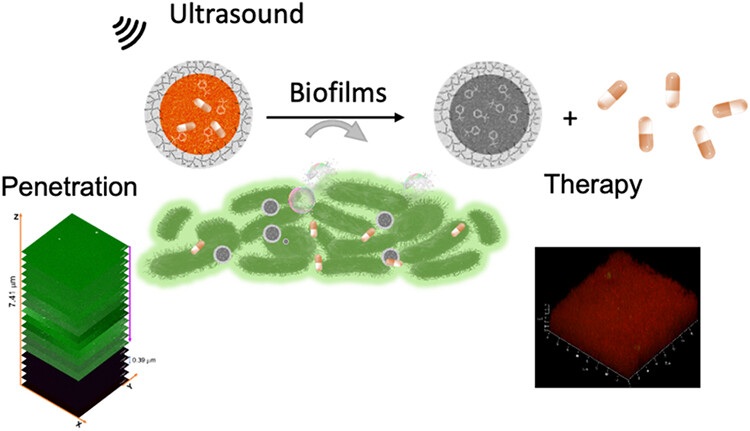
Ultrasound-Activated Nanoagents Kill Superbugs Hiding in Biofilms
Bacterial infections that form biofilms are notoriously difficult to treat. These dense, protective microbial layers shield bacteria from antibiotics and the immune system, often leading to persistent... Read more
Painless Microneedle Skin Patch Monitors Immune Health
Studying immune responses typically requires blood draws or skin biopsies, both of which are invasive and sometimes uncomfortable. Many critical immune cells reside in tissues such as the skin, making... Read moreSurgical Techniques
view channel
Novel Hydrogel Could Become Bone Implant of the Future
Bone fractures often heal naturally, but severe injuries or bone tumors may require surgical implants to restore stability and promote healing. Current solutions typically involve autografts using the... Read more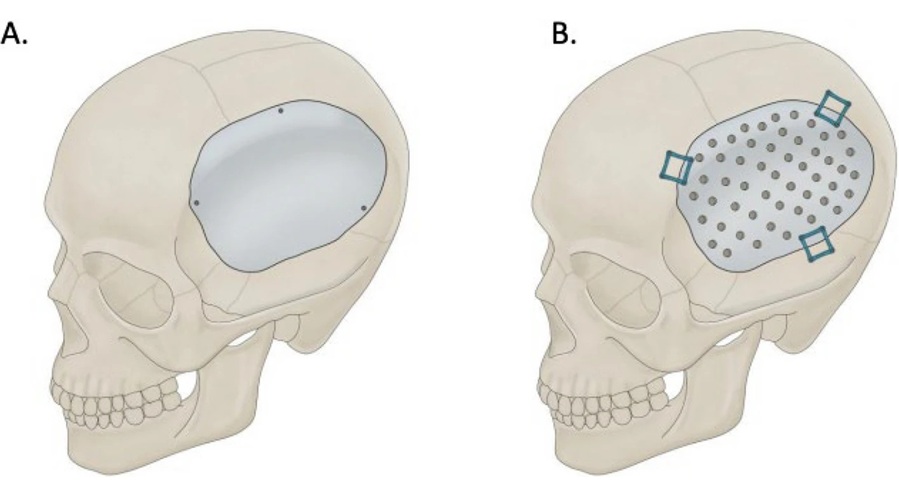
Skull Implant Design Could Shape Surgical Outcomes
Cranioplasty is a common neurosurgical procedure performed to repair skull defects after decompressive craniectomy. In addition to restoring protection to the brain, the surgery can enhance neurological... Read morePatient Care
view channel
Revolutionary Automatic IV-Line Flushing Device to Enhance Infusion Care
More than 80% of in-hospital patients receive intravenous (IV) therapy. Every dose of IV medicine delivered in a small volume (<250 mL) infusion bag should be followed by subsequent flushing to ensure... Read more
VR Training Tool Combats Contamination of Portable Medical Equipment
Healthcare-associated infections (HAIs) impact one in every 31 patients, cause nearly 100,000 deaths each year, and cost USD 28.4 billion in direct medical expenses. Notably, up to 75% of these infections... Read more
Portable Biosensor Platform to Reduce Hospital-Acquired Infections
Approximately 4 million patients in the European Union acquire healthcare-associated infections (HAIs) or nosocomial infections each year, with around 37,000 deaths directly resulting from these infections,... Read moreFirst-Of-Its-Kind Portable Germicidal Light Technology Disinfects High-Touch Clinical Surfaces in Seconds
Reducing healthcare-acquired infections (HAIs) remains a pressing issue within global healthcare systems. In the United States alone, 1.7 million patients contract HAIs annually, leading to approximately... Read moreHealth IT
view channel
EMR-Based Tool Predicts Graft Failure After Kidney Transplant
Kidney transplantation offers patients with end-stage kidney disease longer survival and better quality of life than dialysis, yet graft failure remains a major challenge. Although a successful transplant... Read more
Printable Molecule-Selective Nanoparticles Enable Mass Production of Wearable Biosensors
The future of medicine is likely to focus on the personalization of healthcare—understanding exactly what an individual requires and delivering the appropriate combination of nutrients, metabolites, and... Read moreBusiness
view channel
Medtronic to Acquire Coronary Artery Medtech Company CathWorks
Medtronic plc (Galway, Ireland) has announced that it will exercise its option to acquire CathWorks (Kfar Saba, Israel), a privately held medical device company, which aims to transform how coronary artery... Read more
Medtronic and Mindray Expand Strategic Partnership to Ambulatory Surgery Centers in the U.S.
Mindray North America and Medtronic have expanded their strategic partnership to bring integrated patient monitoring solutions to ambulatory surgery centers across the United States. The collaboration... Read more
FDA Clearance Expands Robotic Options for Minimally Invasive Heart Surgery
Cardiovascular disease remains the world’s leading cause of death, with nearly 18 million fatalities each year, and more than two million patients undergo open-heart surgery annually, most involving sternotomy.... Read more














